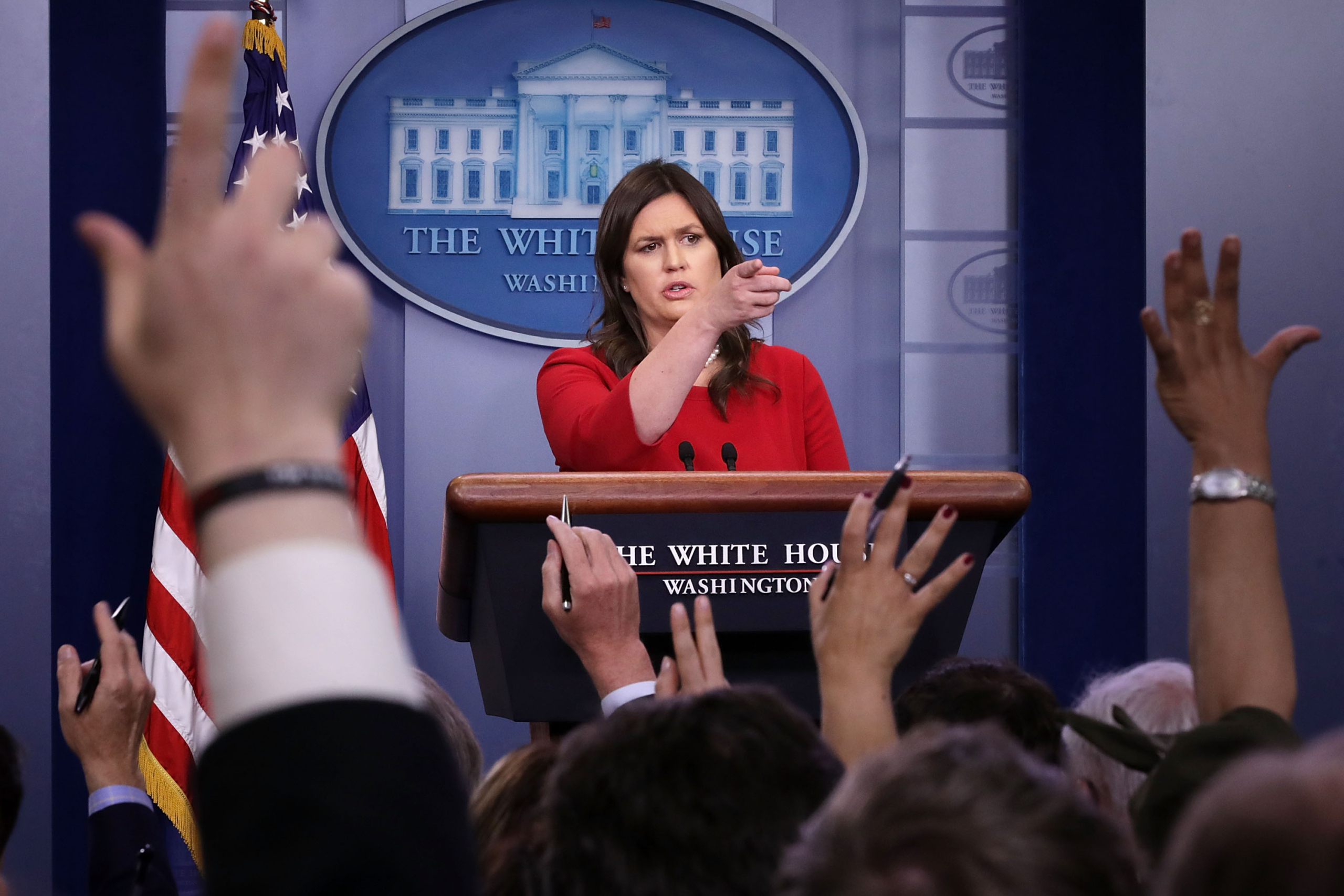Sign up for The Media Today, CJR’s daily newsletter.
The conversation about “civility” in the political sphere is now about a week old. Or a few decades old, depending on how you count it. After White House Press Secretary Sarah Huckabee Sanders was asked to leave by the owner of Red Hen restaurant in Virginia last weekend, Twitter erupted over whether “civility” should be upheld when dealing with members of the Trump administration—and, more broadly, if “civility” is code for the status quo, which is code for something much darker.
As Pete Vernon wrote for CJR earlier this week, the conversation around whether Sanders should have been left alone was largely a distraction. But it has exposed important differences in media practice that need to be reckoned with. On the left, the difference is between those who believe in good-faith debate and the preservation of political process, and those convinced that Trump’s administration has hijacked civilized discussion, and thereby mandates emergency resistance. (As the Los Angeles Times pointed out, Martin Luther King, Jr., often invoked as a champion of civility, was frustrated by the lack of momentum on civil rights and may have fallen in the latter camp.) For journalists, this difference can be likened to whether you afford Trump voters space in articles, or you think lending such space is a waste of time—or worse.
ICYMI: The journalism jobs picture is worse—and better—than you realize
Isaac Chotiner’s interview on Slate with Jeremy W. Peters explores this rift. Peters’s recent front-page New York Times story, detailing the surprisingly resilient, media-savvy defense of Trump by his supporters, brought the partisans out in droves. The folks that Peters quotes are upset by “overblown” criticism of the president, which reinforces their support of his administration. But Chotiner wonders whether this amounts to tacitly blaming the media for Trump’s continued support. Instead, Chotiner suggests, the media angle may be “a convenient way for them to explain their support for a controversial politician.” Chotiner: “What I find frustrating about these pieces is this: No one is going to come out and say, ‘I like Trump because he is a racist’ or because he demonizes immigrants.… one of the things about a lot of the journalism about Trump voters is that it takes at face value people’s reasons for supporting him.” And in the process, Trump supporters gain valuable real estate to further discredit the media.
This difference, which amounts to an epistemological rift, strikes me as very similar to the discussion around civility. To act with civility amounts to trusting the other party just enough to open a space for discussion. The more civility, the more space. For The New Yorker, Adam Gopnik defines “civility” as having “a place at the table” (in Sanders’s case, literally). “Nothing is more essential to our idea of humanism,” he writes, “than expanding that table, symbolically and actually, adding extra chairs and places and settings as we can.” Articles, in turn, abide by the civility principle when we add extra space to the word count to allow more voices to be heard. Peters seems to believe in this measure of civility—Chotiner, and others, are dubious.
To act with civility amounts to trusting the other party just enough to open a space for discussion. The more civility, the more space.
In politics as well as journalism, skepticism about civility amounts to a concern about being used—journalists being manipulated to get anti-media opinions in print, or liberal and humanistic ideals being used to normalize Trump’s unusual rule. (The concern that civility opens one up to attack, too, dates back. The Oxford English Dictionary cites a piece from The New York Review of Books: “Nixon often mistook civility for weakness, as one sees in his taped references to loyal followers as ‘candy asses.’”) At what point does the press stop giving the right the benefit of the doubt? And what effect do those assumptions of good or bad faith mean for the media’s credibility, on both sides of the docket?
Most working journalists would call the question of whether to give Trump voters space in newspapers a false dichotomy. In the end, it comes down to quality of reporting: we have practice, after all, in interviewing people with an agenda. Can we ask Trump voters, not just about the reasons for their support of the president, but about what they’re seeing in their own communities as an effect of the presidency? The best reporting is not just about transcribing the ideas of sources; it’s about pushing sources to articulate their own contradictions. Otherwise, the media will take those contradictions on itself.
ICYMI: The story BuzzFeed, The New York Times and more didn’t want to publish
Has America ever needed a media defender more than now? Help us by joining CJR today.



